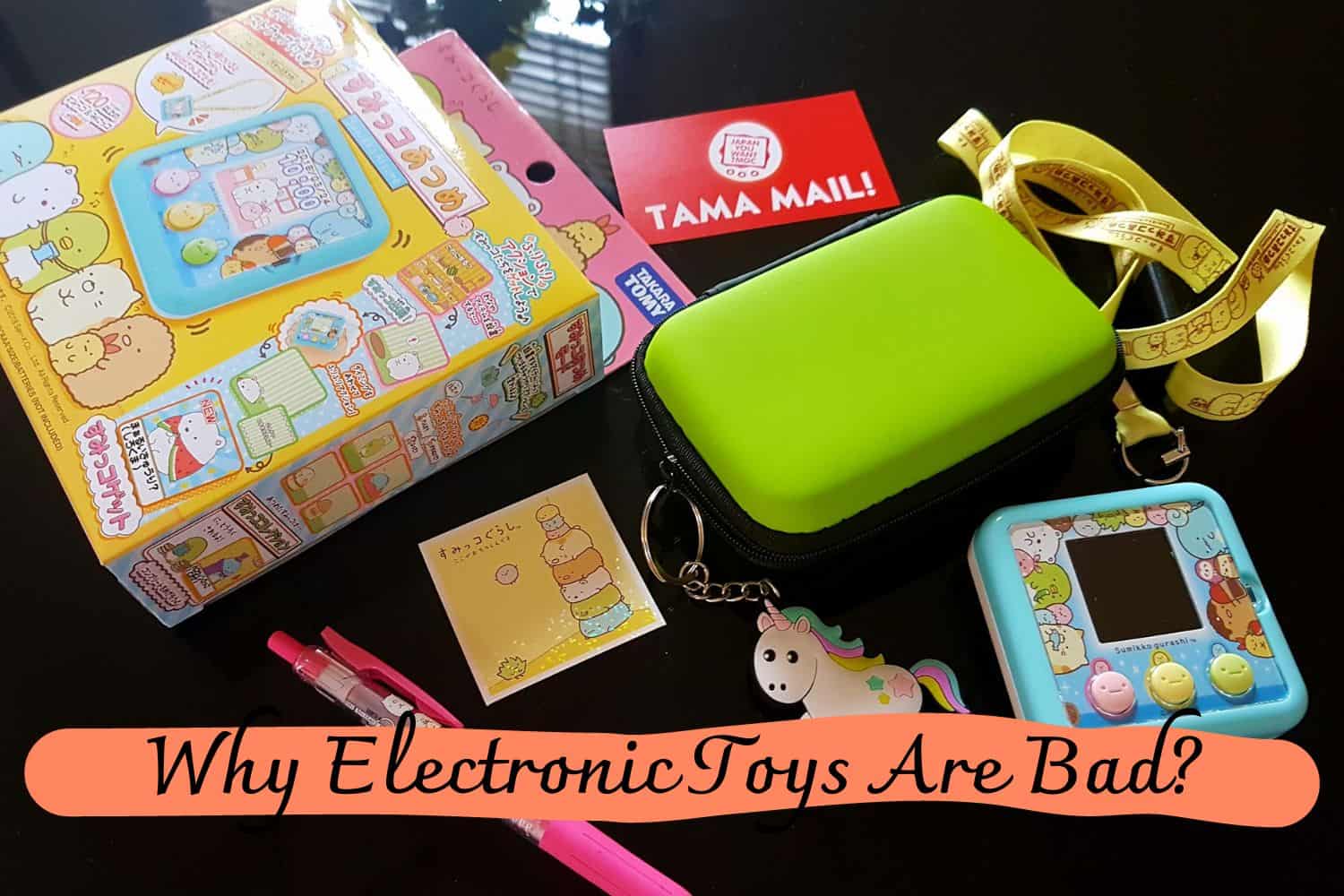Learn why electronic toys are bad, why they may not be the best for kids, and how parents can ensure their children’s development is supported in healthy and holistic ways.
Why Electronic Toys Are Bad – What Parents Should Know
Do you ever worry about how much time your children are spending playing with electronic toys? It may be tempting to give them the latest tech gadgets, but it’s important to remember that too much screen time can have a detrimental effect on their physical and mental health.
In this blog post, we’ll explore why electronic toys are bad for children’s development and provide you with some alternative activities they might enjoy.
Electronic toys can hinder the language development of children. As kids become engrossed in the captivating sounds and flashing lights produced by these toys, they are less inclined to express their thoughts and emotions verbally. Therefore, it is important to consider the potential drawbacks of electronic toys and their effect on children’s language skills.
Reason Why Electronic Toys Are Bad for Kids
Batteries Can Harm Children

Electronic toys have become a staple in many households, offering entertainment and education for children. However, there is a growing concern about the potential harm these toys can cause.
One of the primary hazards lies in the batteries used to power these electronic devices. Children are naturally inquisitive, often putting objects in their mouths. This innocent behavior, combined with the allure of shiny, small batteries, can lead to a dangerous situation.
When these batteries come into contact with bodily fluids, they release a corrosive substance known as sodium hydroxide. This caustic chemical can burn through the delicate stomach lining, causing severe illness, infection, and even death.
Concerned parents may argue that battery-operated toys should have tightly secured cases to prevent access. However, relying on this precaution alone is a risky gamble that no parent should take.
Parents and caregivers must be aware of the potential dangers presented by electronic toys and take necessary precautions to keep children safe. By understanding the risks and implementing safety measures, we can ensure that playtime remains both enjoyable and free from harm.
The Impact of Electronic Toys on Social Interaction
Electronic toys have been found to hinder social interaction, limiting communication opportunities between parents and children. These toys captivate children with their buzzing sounds and flashing lights, making it less likely for them to express their thoughts and feelings verbally.
Furthermore, studies have shown that electronic toys impede language development. In a 2015 research paper, it was discovered that these toys prompted less conversational interaction between children and their parents compared to traditional items like books.
To foster stronger social relationships and promote meaningful communication among children and their parents or peers, it is crucial to discourage the use of electronic toys.
The Negative Impact of Electronic Toys on Language Development
Research indicates that constant exposure to language is crucial for children to comprehend, write, and speak a language effectively. Despite claims that electronic toys enhance language skills, talking toys can hinder language development.
When children and parents rely on talking toys for communication, they miss out on meaningful interactions and fail to actively engage in language use. This lack of social interaction limits the functional use of language for the child.
To promote language development, it is best to encourage active interaction between parents and children. There is currently no evidence to support the idea that toys can effectively facilitate this interaction.
While it is important to note that the research was conducted with small sample size, other experts have supported the findings and emphasized the misleading claims made by toymakers.
Promoting Dependence
Promoting independence is a key goal of parenting, aiming to raise self-sufficient individuals. Surprisingly, the use of electronic toys may hinder this objective.
While no single toy can determine a child’s development, Boston researchers suggest that reliance on toys that dictate play can diminish interest in open-ended and exploratory activities.
This can have long-term consequences on a child’s ability to learn and grow as independent individuals, fostering a culture of dependence on others.
Encouraging Unhealthy Technological Dependence
Electronic toys have the potential to foster an unhealthy inclination towards technology in children. When kids become accustomed to toys dictating their actions and the simplistic process of pressing a button for instant results, this can contribute to a reliance on technology.
While the technology itself is beneficial, excessive dependence on it can hinder innovation. It may lead children to prioritize passive activities at home over active exploration of the outdoors and social interaction with others.
There is no denying that electronic toys can enhance technological awareness. However, the integration of technology in toys is more suitable for older age groups.
The Negative Impact of Electronic Toys on Creativity
Children have a natural inclination towards exploration, problem-solving, and discovery. They thrive when allowed to use their imagination and take control of their playtime. However, electronic toys disrupt this process as they dictate the child’s actions based on the buttons they press.
The moment an electronic toy completes its programmed movements, the child’s imagination is limited and their creativity suffers greatly.
Developmental psychologists from Temple University stress that when selecting toys for children, it is important to prioritize their input and creativity, with the toy only playing a smaller supporting role.
By steering clear of electronic toys and embracing more open-ended options, we can foster an environment that truly nurtures a child’s imagination and allows them to flourish creatively.
They don’t Facilitate Healthy Cognitive Development
Throughout our evolutionary history, the concept of play has been ingrained as a means of experiencing real-life situations in a controlled environment. From a wide range of species, we observe how play hones the skills required for survival in a challenging world.
While rough-and-tumble play may sharpen an animal’s ability to elude predators, in the realm of humans, toys and play that actively engage children’s physical and cognitive abilities empower them to acquire new knowledge.
A notable Russian psychologist validated the link between play and mental development, asserting that learning takes place when children actively engage in practical activities within a social context.
According to numerous research studies, acquiring new knowledge is more likely to occur through the use of simple toys rather than electronic ones. Playing with traditional toys fosters social interaction, active mobility, and creativity among children.
Conclusion
Collecting electronic toys may seem like fun, but it’s important to consider the disadvantages as well. Electronic toys can lead to a range of negative effects such as diminishing creativity, malnutrition, and addiction.
Instead of wasting time and money on electronic toys, parents should invest in healthier activities for their children, such as gardening and board games, which will boost cognitive development tremendously.
Let’s protect our kids from too much screen time by limiting their access to electronics while also nurturing their minds with wholesome play options.
We must take action now so that future generations can enjoy an upbringing full of love and knowledge instead of disconnection, stress, and an unhealthy obsession with technology. Now is the time to make a positive difference—let’s commit to giving our kids the best childhood possible!
Thanks for reading our article Why Electronic Toys Are Bad? If you want to know more information, visit our website here.
Read more:

